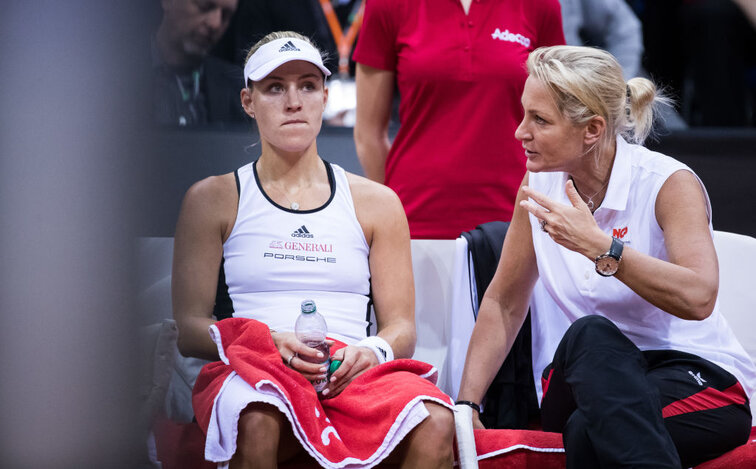Back to insignificance: German women's tennis is facing a new phase of drought
For the ladies, the German tennis fans are likely to have difficult times.
by Jörg Allmeroth
last edit:
Feb 12, 2021, 12:20 pm

Barbara Rittner can still remember the early years of her tenure. German women's tennis was stuck in the earnings crisis back then, but national coach Rittner secretly drew hope when she watched her best teenagers in the regular courses. Back then, Rittner kept making a game out of it: Who would make it into the world class? Who could make the big breakthrough? Andrea Petkovic, Julia Görges, Angelique Kerber? “They all already had their class, that special something. You could tell: A great generation grew up there, ”says Rittner (47). A little melancholy resonates when the Leverkusen resident, meanwhile top women's tennis supervisor at the DTB, thinks back to that era. To young players who were a promise for the near future, for a better tomorrow.
Petkovic, Görges, Kerber: They all made their way in touring. Görges and Petkovic conquered world-class positions in the rankings, they said hello from the top ten, were good for top positions also in the Grand Slams. And Kerber even became the temporarily dominant force in the traveling circus, a three-time Grand Slam queen, number 1 in the rankings, and a silver medalist at the Olympic Games. Kerber was the front figure of the new German Miss Wonder, the woman for page 1 headlines. She also made it onto the throne of the national "Sportswoman of the Year" twice.
Australian Open as a new low
But the time of regular success reports is over again, after a decade, German women's tennis seems to be sinking into international insignificance. The Australian Open marked the temporary low point of a creeping development of the past two seasons on the tour: not a single player reached the third Melbourne round, only Mona Barthel (30) landed a victory at all. Kerber, Petkovic and Laura Siegemund had to stop their individual employment right at the beginning.
The world rankings provide an unvarnished picture of the misery: With Kerber (25th place) and Siegemund (49th place) there are just two representatives of the DTB among the top 100. The best player under 30 is Anna-Lena Friedsam from Rhineland in 111th place , the best player under 25 is only in 180th place - Antonia Lottner from Bonn. “Miracles are not to be expected”, Rittner had already said in the past, unsatisfactory season, “we have to be very patient now. A big gap has arisen. "
A gap that will presumably be even more noticeable when Keber and Petkovic have also retired after Görges. It will not take too long, the complex situation in the midst of the pandemic, all the side effects for gaming operations, should rather accelerate the decision. Görges, the comrade-in-arms of the girlfriend duo Kerber and Petkovic, had decidedly justified her closing line with the imponderables of the Corona age. You don't have to "do all this to yourself," she said. Did Kerber think that too, after a long quarantine, a little unproductive preparation in Melbourne - and then the first round?
Juniors "still need a lot of time"
Rittner and other executives at the DTB had gained a bit of confidence in the past few years that after the departure of the golden generation, there would be no major crisis? Players like Anna-Lena Friedsam, Annika Beck, Dinah Pfizenmaier or Carina Witthöft moved up into the top 100, won tournaments and made a name for themselves at Grand Slams. But today they have all slipped out of the extended world elite, partly because of bad luck with injuries, other goals in life (Beck is studying medicine) or mental problems - Witthöft, for example, openly admitted that he could no longer stand the pressure to perform in top tennis. Lottner, formerly one of the best juniors in the world, never really made it into the territory of the international elite in adult tennis - also because of various physical setbacks.
Just like the DTB coaches Jasmin Wöhr and Dirk Dier, Rittner cannot look to the future with great hope in the crisis, at least not in the short to medium term. There are definitely female players with greater potential among the juniors, “but they still need a lot of time,” says Rittner, “and we don't know how their careers will develop in the next few years.” The pandemic also acts as an amplifier for the unclear prospects, like a big fog thrower: Because the German talents can actually measure each other in the performance bases, but the international comparison, the test of strength with their peers even in the junior Grand Slams, is completely missing. Who can cope with the partial standstill best, whose career it affects or damages the least, is the big question for the near future and for the next few years.
